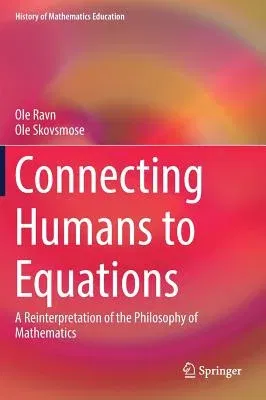OLE Ravn
(Author)Connecting Humans to Equations: A Reinterpretation of the Philosophy of Mathematics (2019)Hardcover - 2019, 25 February 2019

Qty
1
Turbo
Ships in 2 - 3 days
In Stock
Free Delivery
Cash on Delivery
15 Days
Free Returns
Secure Checkout

Part of Series
History of Mathematics Education
Print Length
188 pages
Language
English
Publisher
Springer
Date Published
25 Feb 2019
ISBN-10
3030013367
ISBN-13
9783030013363
Description
Product Details
Authors:
Book Edition:
2019
Book Format:
Hardcover
Country of Origin:
NL
Date Published:
25 February 2019
Dimensions:
25.4 x
17.78 x
1.27 cm
ISBN-10:
3030013367
ISBN-13:
9783030013363
Language:
English
Location:
Cham
Pages:
188
Publisher:
Weight:
589.67 gm